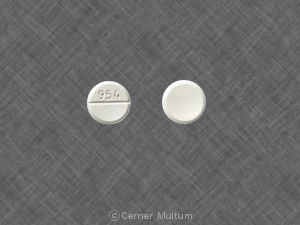Bethanechol Dosage
Medically reviewed by Drugs.com. Last updated on Jul 24, 2025.
Applies to the following strengths: 5 mg; 10 mg; 25 mg; 50 mg; 5 mg/mL
Usual Adult Dose for:
Additional dosage information:
Usual Adult Dose for Urinary Retention
Initial dose: 5 to 10 mg orally once to obtain minimum effective dose; repeat the same amount at hourly intervals until satisfactory response occurs or a maximum of 50 mg has been given
Maintenance dose: 10 to 50 mg orally 3 to 4 times a day
Comments:
- Drug effects sometimes appear within 30 minutes and are usually maximal within 60 to 90 minutes.
- Drug effects persist for about 1 hour.
- If necessary, the effects of this drug can be eradicated promptly by atropine.
Uses: For the treatment of acute postoperative and postpartum nonobstructive (functional) urinary retention; and for neurogenic atony of the urinary bladder with retention
Usual Adult Dose for Neurogenic Bladder
Initial dose: 5 to 10 mg orally once to obtain minimum effective dose; repeat the same amount at hourly intervals until satisfactory response occurs or a maximum of 50 mg has been given
Maintenance dose: 10 to 50 mg orally 3 to 4 times a day
Comments:
- Drug effects sometimes appear within 30 minutes and are usually maximal within 60 to 90 minutes.
- Drug effects persist for about 1 hour.
- If necessary, the effects of this drug can be eradicated promptly by atropine.
Uses: For the treatment of acute postoperative and postpartum nonobstructive (functional) urinary retention; and for neurogenic atony of the urinary bladder with retention
Renal Dose Adjustments
Data not available
Liver Dose Adjustments
Data not available
Precautions
CONTRAINDICATIONS:
- Hypersensitivity to the active component or to any of the ingredients
- Hyperthyroidism
- Peptic ulcer
- Latent or active bronchial asthma
- Pronounced bradycardia or hypotension
- Vasomotor instability
- Coronary artery disease
- Epilepsy
- Parkinsonism
- Mechanical obstruction of the gastrointestinal (GI) or bladder wall or the strength or integrity is in question
- When increased muscular activity of the gastrointestinal tract or urinary bladder might prove harmful (e.g., following recent urinary bladder surgery, gastrointestinal resection, and anastomosis, or possible GI obstruction)
- Bladder neck obstruction, spastic gastrointestinal disturbances, acute inflammatory lesions of the gastrointestinal tract, or peritonitis
- Marked vagotonia
Safety and efficacy have not been established in patients younger than 18 years.
Consult WARNINGS section for additional precautions.
Dialysis
Data not available
Other Comments
Administration advice:
- Preferably to be taken on an empty stomach; if taken soon after eating, nausea and vomiting may occur.
- Doses must be individualized, depending on type and severity of condition being treated.
More about bethanechol
- Check interactions
- Compare alternatives
- Pricing & coupons
- Reviews (17)
- Drug images
- Side effects
- During pregnancy
- Drug class: miscellaneous genitourinary tract agents
- Breastfeeding
- En español
Patient resources
Other brands
Professional resources
Other brands
Related treatment guides
See also:
Further information
Always consult your healthcare provider to ensure the information displayed on this page applies to your personal circumstances.


